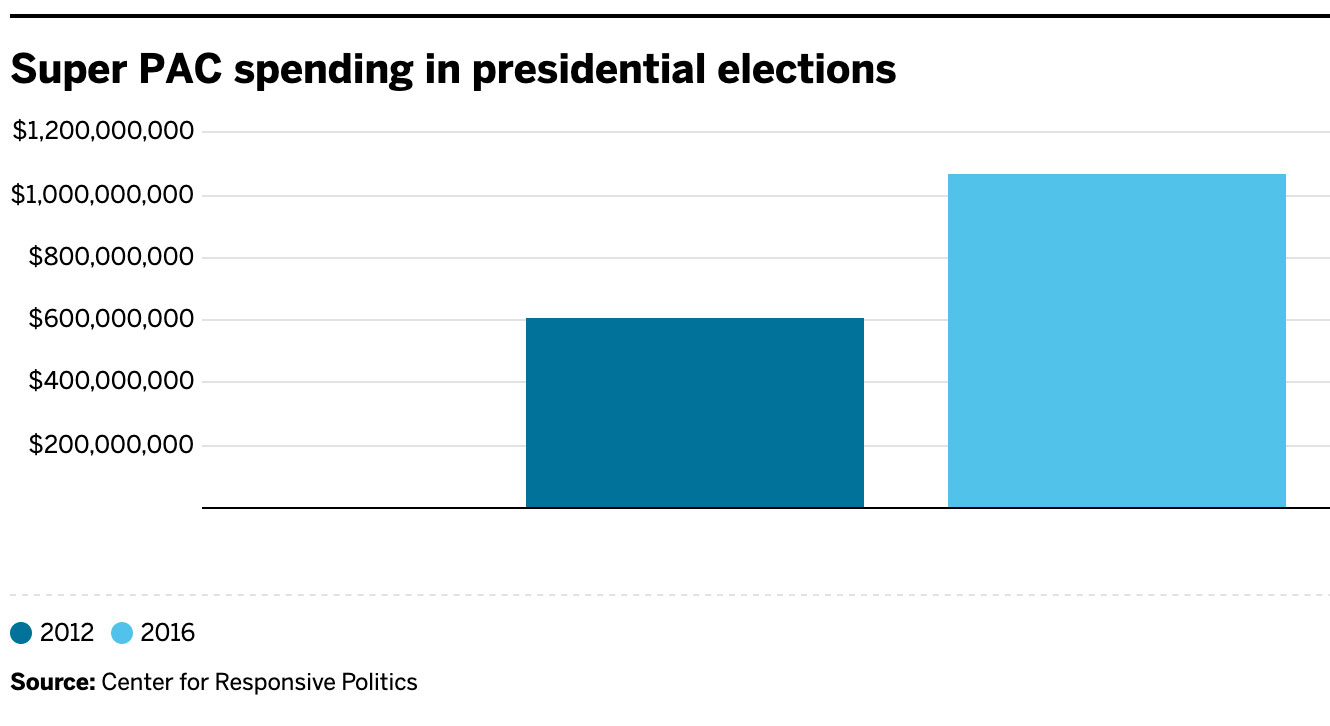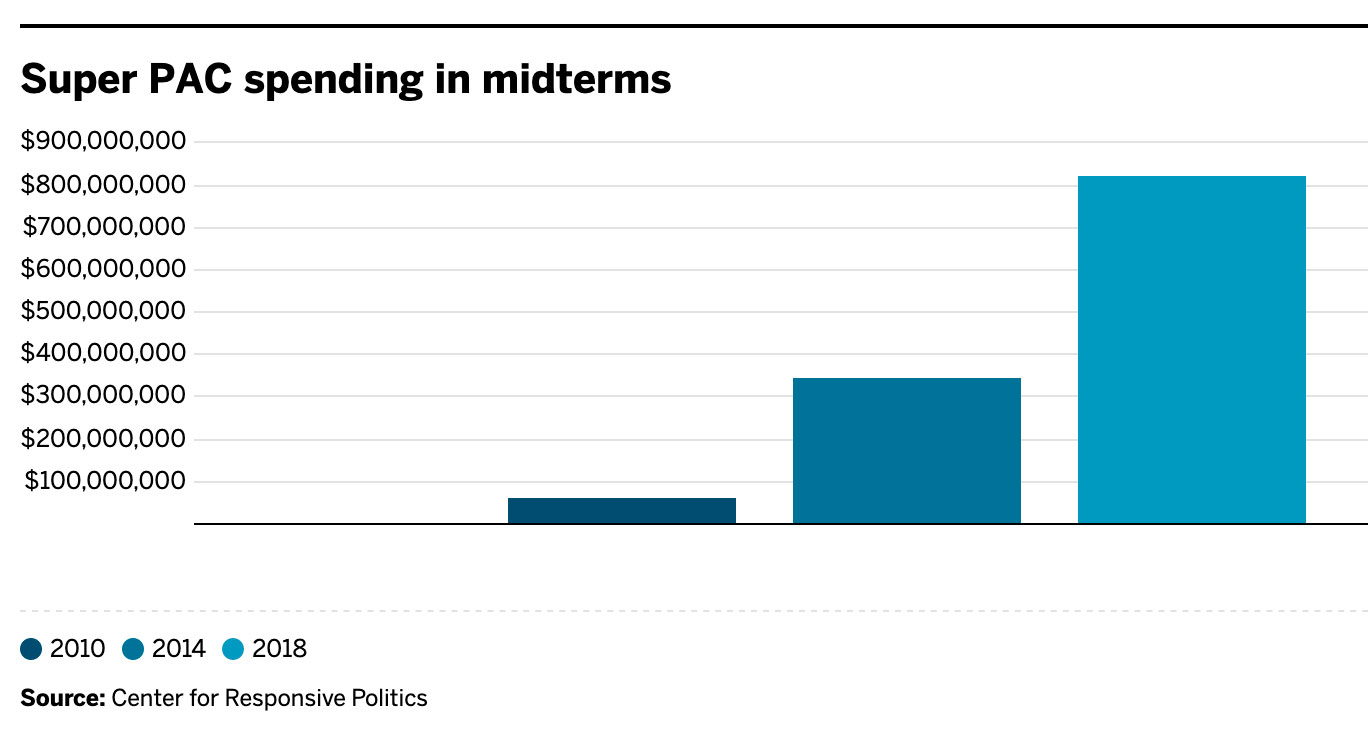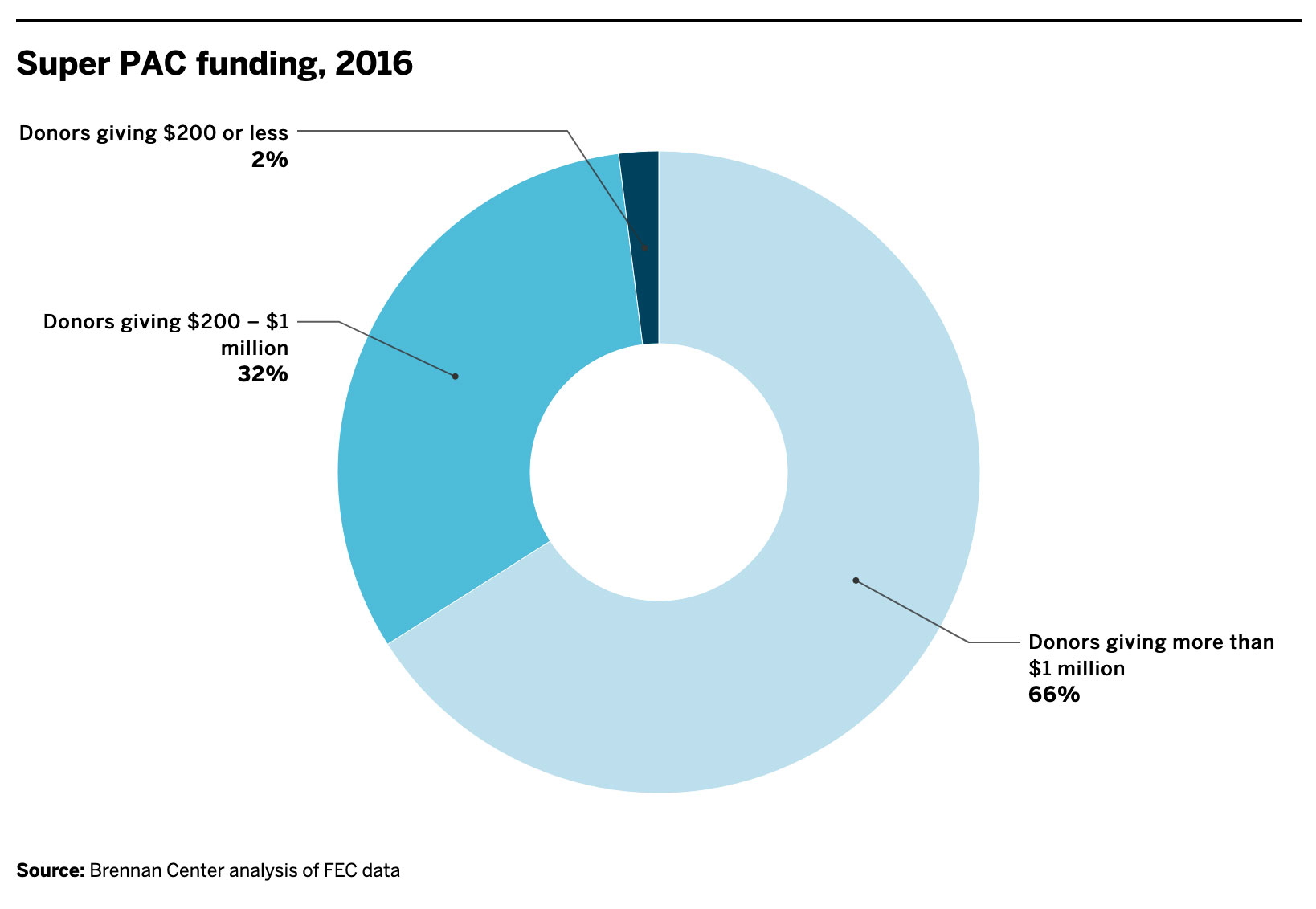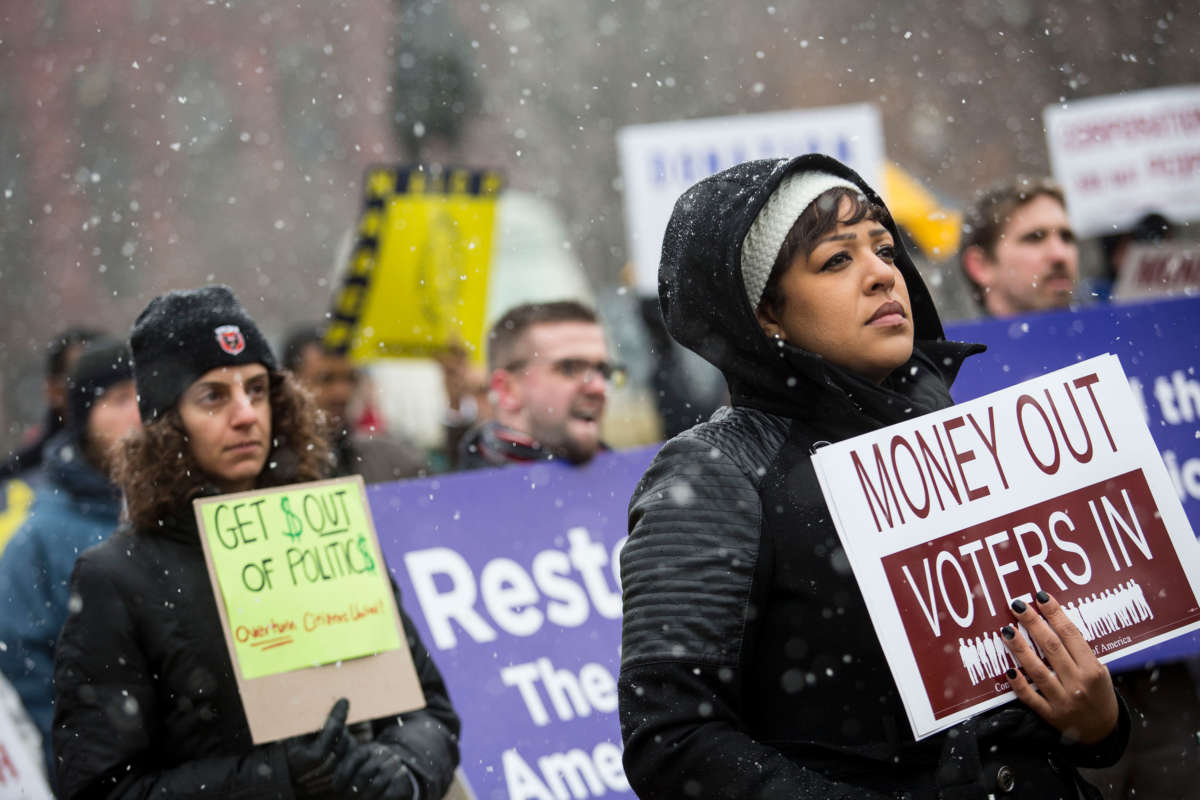Support justice-driven, accurate and transparent news — make a quick donation to Truthout today!
As a new decade begins, it’s hard to believe just how different our campaign finance system looks now compared with the beginning of the last decade. One key difference: ten years ago, there was no such thing as a super PAC. That’s because the Supreme Court hadn’t decided Citizens United yet.
After that and related cases hacked away at campaign finance limits and the commonsense principles underlying them, a new landscape began to take shape — one that favors the superrich above all others.
For decades, limits on the amount of money people could give to politicians protected against corruption and required candidates to build broad support from many Americans. But in the post-Citizens United era, the wealthiest donors and special interests are free to spend without limit, and politicians rely on support from donors giving ever-larger amounts.
In 2010, Citizens United struck down caps on “independent” spending by corporations and unions, reasoning that money that doesn’t go directly to candidates can’t pose any danger of corrupting them. A few months later, a lower court — bound to follow the Supreme Court’s reasoning — struck down limits on the size of contributions to groups that support candidates without donating to them directly. Since these new creations are supercharged versions of “political action committees” (PACs), they were dubbed “super PACs.”
In the decade since their creation, super PACs have spent almost $3 billion on federal elections. Super PAC spending has trended sharply upward in both presidential and midterm election cycles.


The apex for super PACs so far has been 2016, when they poured over $1 billion into federal elections, accounting for 16 percent of all spending. But that percentage is deceptively low, because super PAC money is not evenly spread across all elections. The political operatives who control super PACs carefully focus their attention on competitive races, where the groups can even outspend the candidates themselves. During the last two election cycles, super PAC spending exceeded expenditures by all the candidates combined in 54 federal races, according to the Center for Responsive Politics.
Of course, super PACs are not just another form of political group. Their entire reason for existing is to allow unlimited contributions, so they are really for those who can afford amounts larger than the $5,600 limit on donations to candidates. Since the 2016 election, super PACs have raised more than two-thirds of their money in donations of more than $1 million. Some are funded by a single multi-millionaire. The biggest donors have given of tens or even hundreds of millions of dollars to super PACs.


Although super PACs are legally required to operate independently of candidates, they frequently choreograph their activities with campaigns. Single-candidate super PACs raise tens of millions of dollars each and spend all of their money to get one candidate elected. The biggest-spending super PACs in congressional elections are run by top staff of party leaders and carefully align their spending with the parties. All of this allows candidates and their wealthiest supporters to circumvent limits on contributions to candidates and parties.
The Citizens United opinion naively said that independent spending can’t corrupt. But not surprisingly, super PAC money has been involved in a long line of corruption scandals and convictions, including the charges against Lev Parnas and Igor Fruman, associates of Rudy Giuliani who are implicated in the Ukraine scandal that led to President Trump’s impeachment.
Citizens United planted the seed that allowed super PACs to increase the power of corporations and rich people to influence who runs for office and who wins elections in order to shape American politics to their own advantage. Ten years after their creation, super PACs are huge and still growing. Without reforms like public campaign financing, the next decade is all but certain to yield a system even more skewed toward the wealthy few.
Data analysis by Kevin Morris.
Press freedom is under attack
As Trump cracks down on political speech, independent media is increasingly necessary.
Truthout produces reporting you won’t see in the mainstream: journalism from the frontlines of global conflict, interviews with grassroots movement leaders, high-quality legal analysis and more.
Our work is possible thanks to reader support. Help Truthout catalyze change and social justice — make a tax-deductible monthly or one-time donation today.
